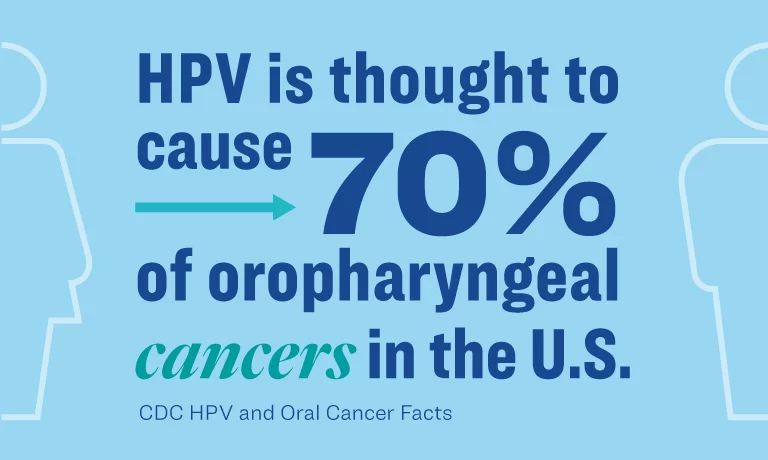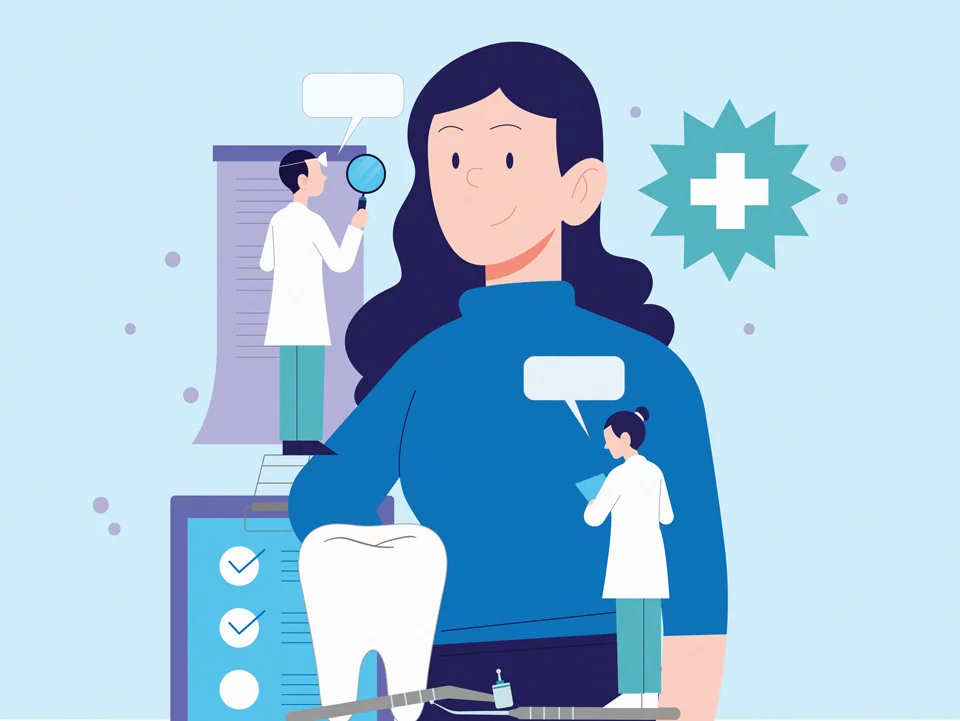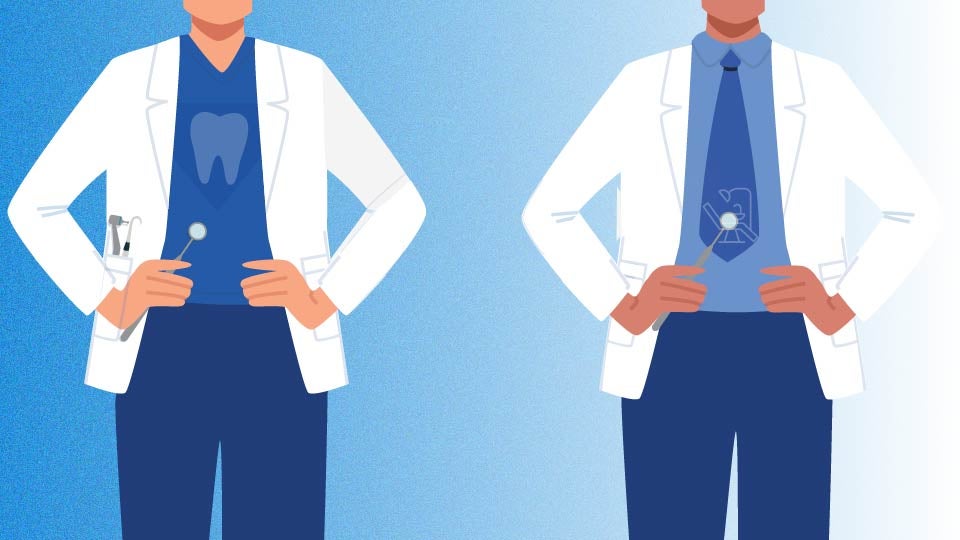The mouth isn’t the part of the human body that typically comes to mind at the mention of human papillomavirus (HPV), the most commonly transmitted infection in the U.S.
We associate HPV more often with warts and cancers of the genitals, thanks to widespread awareness and educational efforts over the years focusing on preventing the spread of HPV. Because it’s not discussed often enough or people are embarrassed or too uncomfortable to talk about it, a lot is unknown about the connection between HPV and the mouth. What you may not be aware of is that HPV can be transmitted through oral sex and cause infections in the mouth and throat.
These types of infections can resolve over time and show no symptoms. But in rare cases, the infections persist and can lead to oropharyngeal cancers—those located in the back of the mouth, including the base of the tongue and tonsils. Cancers in the mouth and throat usually take years to develop after the initial infection. It’s important to be aware of these because oral cancers are on the rise in the U.S. In fact, oropharyngeal cancers have surpassed cervical cancer as the most common HPVassociated cancer, according to the Centers for Disease Control and Prevention.
Studies have found an association between HPV infection and the presence of gum disease—periodontitis in the mouth.
If your gums are inflamed, they may make your mouth more vulnerable to HPV. If you have any kind of dental treatment that's been done recently and there is damage in the gums, that may become an entry point of HPV. Not being aware of these can impact you and lead to oropharyngeal cancer.

HPV vaccination could prevent more than 90% of cancers caused by HPV from ever developing.
Symptoms of oropharyngeal cancer can include hoarseness, persistent sore throat, swollen lymph nodes, pain when swallowing, earaches and unexplained weight loss. But sometimes, there are no symptoms. It’s especially important for women—and young men, as well— to be aware of the link between oral sex and HPV so they can take preventive measures.
• Routine vaccination is recommended at 11 or 12 years old but can be started at 9. The vaccine works best before exposure to HPV.
• If you’re not yet 26 and weren’t adequately vaccinated when you were younger, you can get vaccinated. The vaccine does not treat existing infections but prevents new ones.
• Use an antibacterial mouth rinse after oral sex.
• Using a dental dam can help reduce the risk of passing along HPV.
• Don’t vape, smoke or chew tobacco, which can harm your teeth and gums, increasing your risk of periodontal disease.
• Talk to your dentist about protecting yourself from oral HPV.
• Maintain regular good oral hygiene.
Find your trusted, local dentist today!
Smile Generation blog articles are reviewed by a licensed dental professional before publishing. However, we present this information for educational purposes only with the intent to promote readers’ understanding of oral health and oral healthcare treatment options and technology. We do not intend for our blog content to substitute for professional dental care and clinical advice, diagnosis, or treatment planning provided by a licensed dental professional. Smile Generation always recommends seeking the advice of a dentist, physician, or other licensed healthcare professional for a dental or medical condition or treatment.







